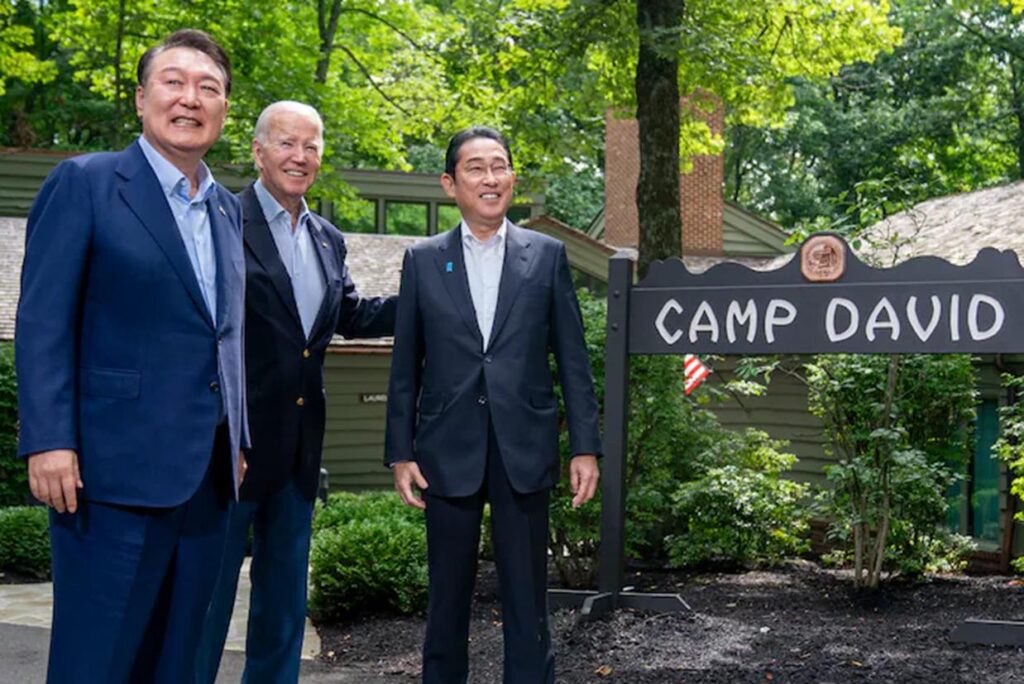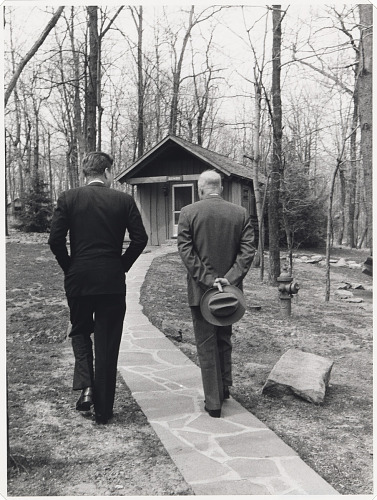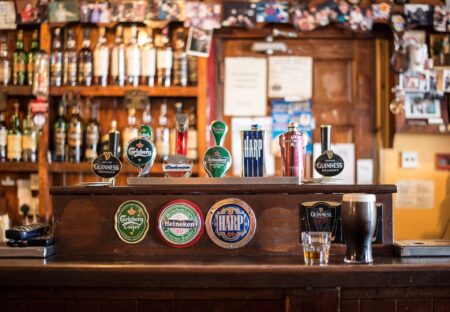Imagine a secluded place with no address, tucked into the verdant Catoctin Mountains, where the leader of the free world escapes immense pressures. A private getaway where outside stresses are kept at bay- keeping a president sheltered from an ever-inquiring press and the exhausting chess-match of politics. A natural setting reserved for rejuvenation, mostly unknown by the outside world- until a former resident stepped forward to reveal its stories.
That person is author Michael Giorgione, a retired United States naval officer who commanded Camp David from June, 1999, to August, 2001. His book is titled: “Inside Camp David: The Private World of the Presidential Retreat”. It is the first public account of that hidden world.

In 1942, President Franklin Roosevelt laid eyes on a wooded paradise and proclaimed it his “Shangri-La”. After he directed its conversion to a presidential retreat, this 125-acre tract was later commissioned as “Naval Support Facility Thurmont”. But the historic Maryland property is now simply known as Camp David.
After Roosevelt, Camp David evolved into a natural tonic for ensuing presidents. But at first, the reception was tepid. Harry Truman, FDR’s successor and a Midwesterner, thought there were too many trees, and even had a few removed. He preferred the presidential yacht and seldom visited Camp David. 34th President Dwight Eisenhower briefly contemplated closing the camp, built by the Works Progress Administration during the Depression. Eventually, the scenery and rustic lodging charmed Ike. He changed the place’s original name (Shangri-La) to Camp David, honoring his father and grandson. The presidents who followed Eisenhower were later grateful he kept the retreat.
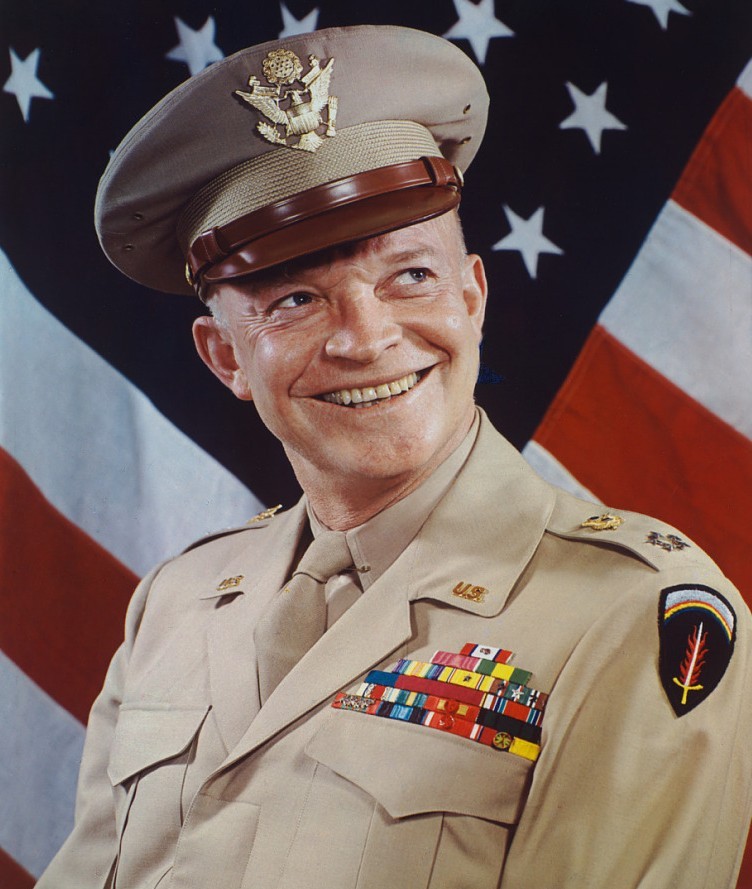
Despite the term retreat, much important work has taken place at Camp David. Roosevelt and Winston Churchill planned World War II strategy here in 1943. Eisenhower held cabinet meetings while recuperating from a heart attack, and then later met Soviet leader Nikita Khrushchev in 1959. President Carter brokered the 1978 Camp David Peace Accords at the site. Only a few weeks ago, President Biden hosted Japanese and South Korean leaders in the peaceful Maryland countryside. Camp David continues a long tradition of disarming foreign leaders and soothing domestic officials with its rural charm.
For a facility perched on a mountaintop, it’s surprisingly managed by the U.S. Navy. Every two to three years a new Commanding Officer takes over and lives onsite. Until recently, the behind-the-scenes management conducted and the history they witnessed was known only to them. Then, former Commander Michael Giorgione was motivated to tell first-person antidotes of a storied past.
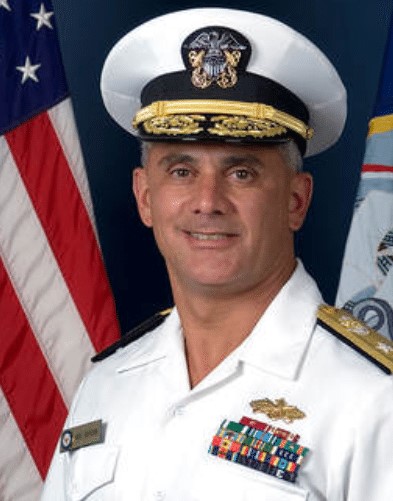
Giorgione grew up in Pittsburgh, the first in his family to pursue a military career. After graduating from the Naval Academy in Annapolis, he began a career in typical military fashion. He served around the globe, not knowing his talent would eventually bring him back to
Maryland for a monumental assignment. Michael met his wife Michele and later with their two children, they lived a nomadic life in exotic locales, including the Philippines, Sardinia, and Hawaii.
Then, the White House Military Office called, offering special duty. Michael was chosen for the Commander’s position at Camp David. But not before an extensive vetting process was completed and confirmed the confidence his superiors had in his background and leadership skills.
“We knew it would be a sacrifice,” Giorgione said about his family’s new mission, “but sometimes sacrifices pay off.”
When they arrived at Camp David to live in Cedar Cabin, Michael’s two young daughters presented a journal with this inscription:
Dear Daddy,
We want you to write stories about Camp David and the President in this Journal. Someday our children will be able to read them. We love you.
“I’m sure their mother had a hand in it,” Michael remembered. Recognizing the historic position he was prepared to undertake, he took their sweet request seriously. Giorgione began writing in that journal.
During his tenure at Camp David, Giorgione served two presidents- Bill Clinton and George W. Bush. Each leader had a different attachment to the retreat. “Clinton was an infrequent visitor”, Giorgione said, “But Bush was fond of Camp David- he came three weekends a month.”
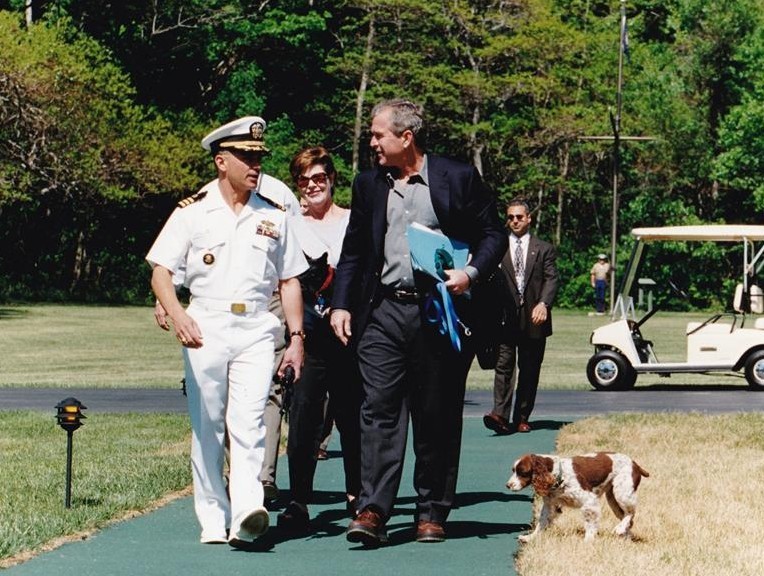
Commander Giorgione explained the contrasting challenge serving the two presidents. “I had to keep my crew engaged during long periods of inactivity between Clinton’s visits. Then our operations tempo picked up dramatically when Bush became president.”
When asked about his favorite Camp David memories, Michael said: “I had the honor of meeting four presidents. I also loved going into Aspen (the president’s cabin) to look at the picture albums. Each season was enjoyable but autumn was my favorite time on the mountain.”
Despite working closely with the most powerful man in the world, Giorgione and his family tried living a normal life whenever possible. Michael and Michele took their kids offsite to tumbling classes in Waynesboro and enjoyed fried chicken at Thurmont’s Cozy Restaurant. Back at their quarters, they often hosted friends and family. “Camp David was a great place to entertain,” Michael said.
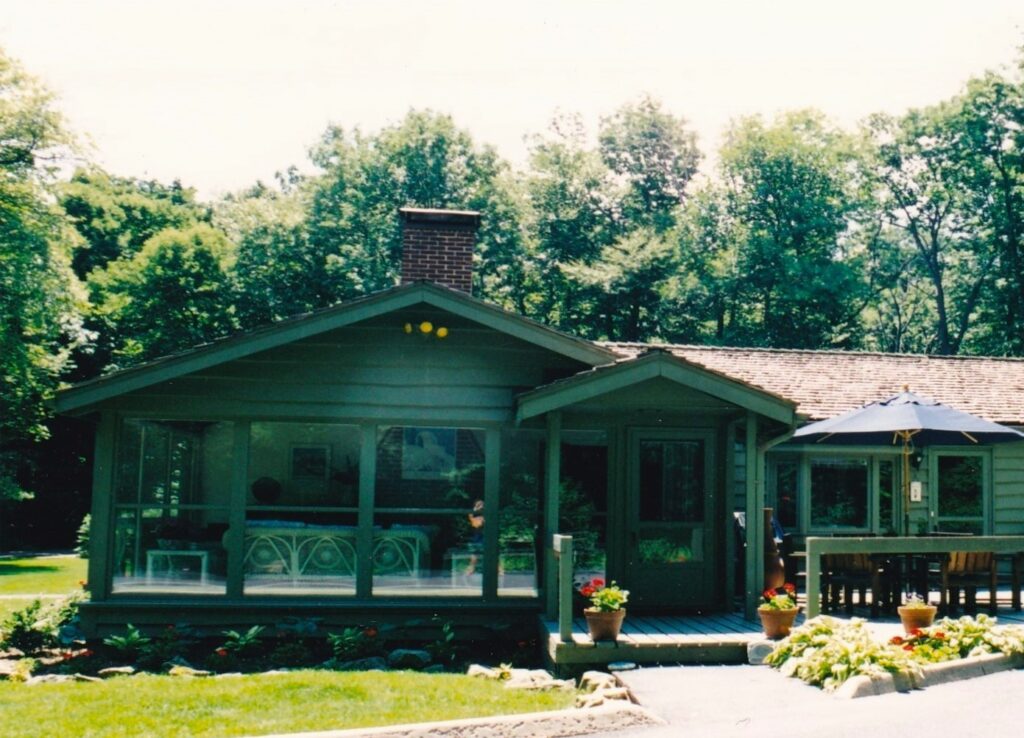
Giorgione passed the leadership baton only a month before the September 11th attacks. President Bush came to Camp David afterward, but Michael O’Connor was the new Commander by that time. As Giorgione moved on with his career it continued to flourish as he pursued other naval challenges. He later achieved the rank of Rear Admiral.
After retirement, Giorgione thought he’d write a leadership book with his Camp David journal, but a 2016 reunion inspired a new direction. Back at Camp David, Michael chatted with his former and succeeding Commanders. Later, fifteen past CO’s would share their stories, and partnered with his own memories, Giorgione had ample material for his book.
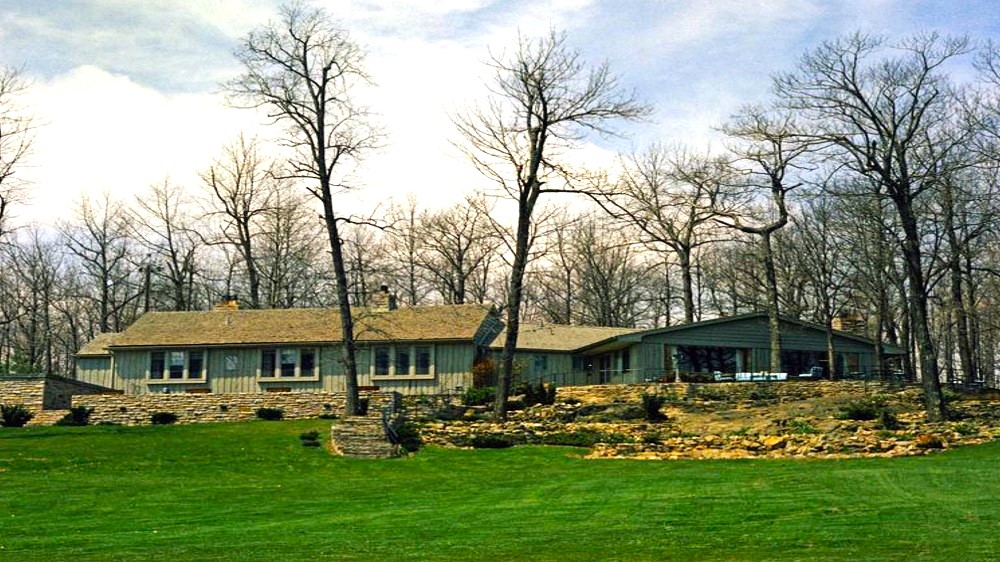
When Michael Giorgione looks back on Camp David, he reflects on the mystical aspects of the property. In Chapter Twelve of his book, titled, The True Meaning of Camp David, he wrote:
“In some respects the meaning of Camp David- the spirit- exists more in mood than in substance. It can be found in a stroll along the paths on a fragrant spring afternoon; in the high wind that kicks up when Marine One’s blades are spinning; in the sharp salute of a Marine greeting the president; in the woodsy smell of a cabin on a summer day; in the sight of a deer peeking through the brush; in a bike ride along the trails, the Secret Service in tow; in the unabashed delight of foreign leaders wearing their signature camp jackets; in the contemplative moment when a president sits in Aspen cabin in front of a roaring fire; in the icy breath of a Marine on patrol on a winter night. The spirit of Camp David can be found in the deep quiet of the nights, everyone tucked into his or her cabin- even the President of the United States can drift off in a safe and cozy berth, the weight briefly lifted.”
The book tells many other fascinating stories about the presidential family’s connections to Camp David’s natural surroundings, rustic architecture, and unique culture. Giorgione also shares challenges, both serious and humorous, he and his fellow Commanders faced as they protected and hosted dignitaries.
“Inside Camp David” concludes by describing Giorgione’s experience, shared with his family, as “one of the most important and memorable of our lives. We were happy there, in our home in the woods on top of a mountain. And that was our mission for the presidents we served- simply, that they be happy.”
Michael Giorgione now resides in San Diego. He is working on a new book about U.S. Presidents who served in our military. His current book, “Inside Camp David”, can be purchased online through Amazon. For more information, visit his website: www.insidecampdavid.com.
